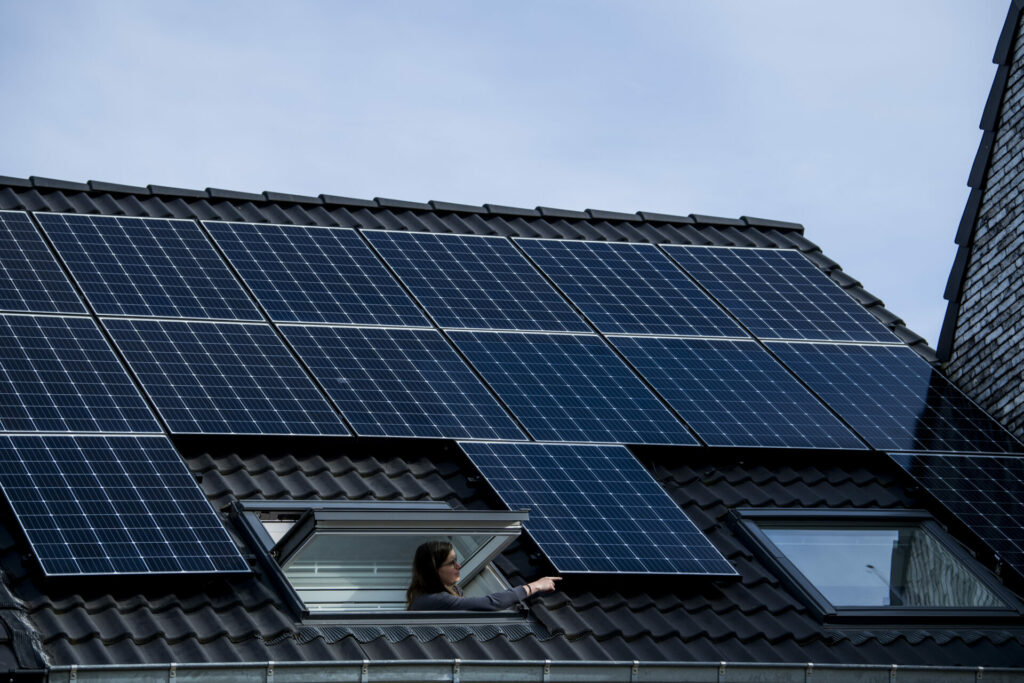With energy prices continuing to soar across European countries, the question of looking towards alternative energy sources is gaining relevance. In Belgium, acquiring a so-called "home battery" is gaining ground.
Home batteries let people store the energy that solar panels produce for later use. Pairing solar panels with the battery to create what is known as a ‘hybrid solar system’ comes with several advantages, including access to reliable backup power and independence from external energy producers.
Solar panels produce the most electricity during the middle of the day, at a time when usually, people use the least amount of electricity.
With a regular grid-tied solar system, that excess solar energy gets sent back to the utility grid. When solar panels are paired with a home battery, however, that excess electricity goes into the battery instead of going to the grid.
The battery charges with surplus energy, and in the evening, when there is no more sun, the battery will discharge this energy. This can help a household to increase its self-consumption of electricity from 30% to about 70%.
Cost-effective?
The batteries, manufactured by a wide range of companies including SolaX, Tesla, Huawei, LG, Solarwatt, and Sonnen, among others, are no longer lead-acid batteries and have instead been replaced by more powerful lithium-ion batteries with a greater number of recharge/discharge cycles.
The cost, however, remains substantial, with people forking out between €6,000 and €8,000 for the batteries, which can "save" energy for up to two days. The choice of product depends on a household's daily electricity consumption and the production capacity of the solar panels.
"You have to look for the optimal combination to make the most of your self-production," consumer rights association Test-Achats told Le Soir.
The installation of a battery is the most profitable in Flanders, as a result of the injection tariff, which sees people living in the region receiving a premium for the purchase of a battery. This resulted in the number of applications for such a battery growing by 9% in the first eight months of this year.
Related News
- Belgian provider installs 6,000 free solar panels with more to come
- Going off-grid: Things to consider
Engie, the Belgian market leader in sales of electricity and natural gas, noted that, in some places, the investment would pay for itself after seven years, and could result in an annual saving of €400 on a household's energy bill.
However, to be profitable, a battery, which usually has a lifespan of up to 15 years, would have to remain in good condition for longer than they currently do. In general, the capacity currently degrades from year to year.
"Even with a premium like in Flanders, an investment in a home battery will rarely be profitable," Test-Achats wrote on its website.

